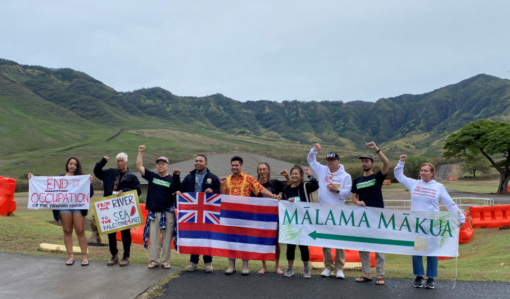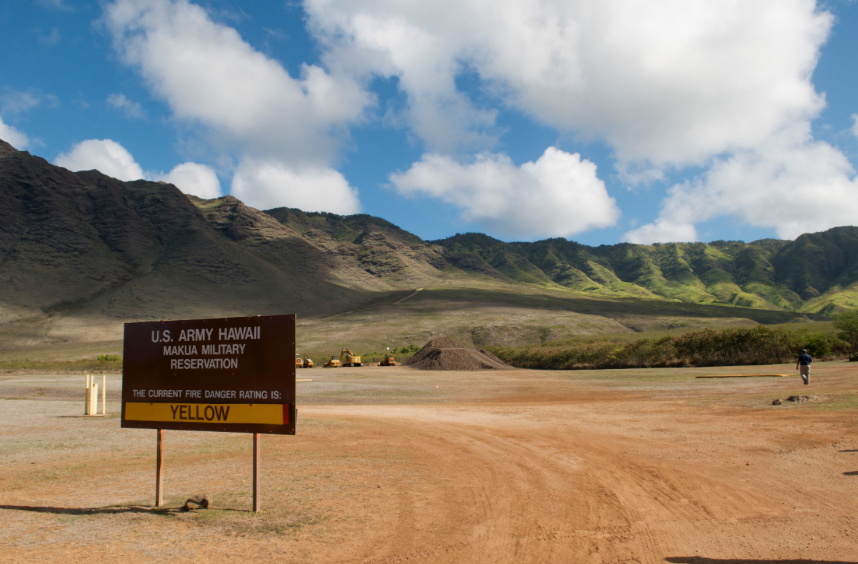By Brandon Maka’awa’awa, Vice President
The United States Army’s recent announcement that it will allow leases to expire at Mākua, Poamoho, and Kahuku Military Reservations has been hailed by some as a positive step—a gesture that acknowledges decades of community outcry over the environmental destruction and cultural desecration caused by military training. But let’s be clear: this isn’t a genuine act of accountability or reconciliation. It’s a calculated move—a bait and switch designed to win public favor and secure the continued occupation of other sacred Hawaiian lands, most notably at Pōhakuloa.
Just last week, the Army’s Environmental Impact Statement (EIS) for Pōhakuloa was rejected, largely due to powerful public opposition. Now, suddenly, they’re letting go of other parcels they claim are “not integral” to military readiness. If they were never essential, why were they held for decades? Why now, after the community has pushed back and forced the Army to the table, are they choosing to walk away?
The answer is leverage. The Army is not returning land out of respect or kuleana. They are giving up pieces in poor condition to appear cooperative, hoping to earn enough goodwill to renew their grip on Pōhakuloa. It’s a political calculation—not a reflection of genuine change.

And let’s talk about the condition of these lands. What the Army is offering back isn’t the land they received. It’s land stripped of its integrity—bombed, contaminated, and ecologically degraded. This isn’t restoration; it’s abandonment. The military is attempting to walk away from its responsibility, leaving the people of Hawai‘i to inherit the consequences of their negligence.
We must not let this slide. Returning land should come with an obligation to make it pono—to return it in a better state than it was taken. That means cleanup, accountability, and true investment in healing these scars. And most importantly, it means involving and empowering the Native Hawaiian community in that healing process.
As part of real reconciliation—reconciliation the U.S. government already acknowledged the need for in US Public Law 103-150, the Apology Resolution—the military should fund the environmental remediation of these lands. Not by outsourcing it to mainland contractors with no ties to our ʻāina, but by training and hiring Native Hawaiians to do this work themselves.
This can be more than cleanup. It can be the foundation of a new industry—an ʻāina-based workforce that pays living wages and teaches the next generation how to restore our land and waters. It’s not just an environmental duty—it’s economic diversification, it’s cultural restoration, it’s sovereignty in action.
So no, this is not a victory. Not yet. The return of these lands only matters if they come with kuleana, resources, and a seat at the table for the people most affected. Until then, we must call this what it is: a public relations move, not a promise kept.
We demand more than symbolic gestures. We demand justice for our lands, for our people, and for our future.


0 Comments on "The Army’s “Return” of Hawaiian Lands Isn’t Reconciliation—It’s a Diversion"